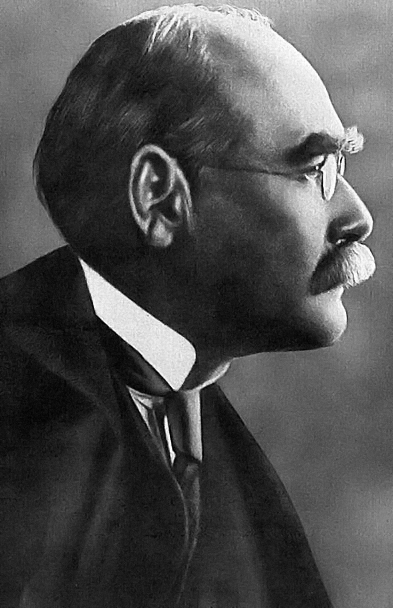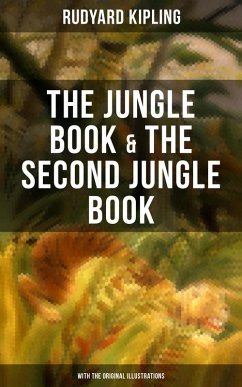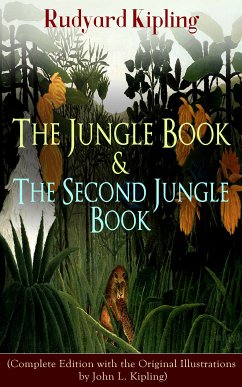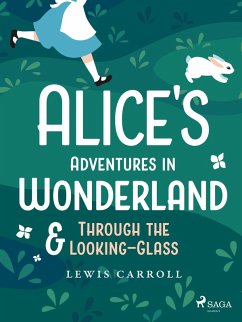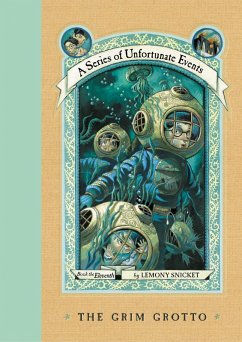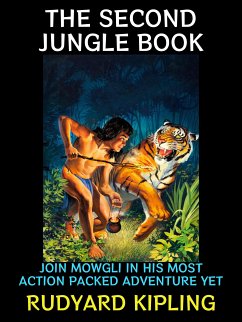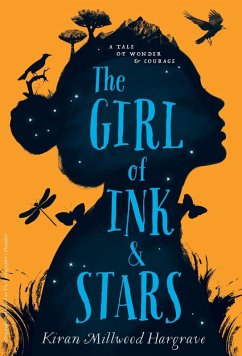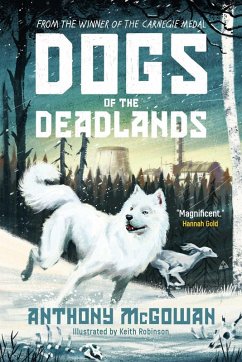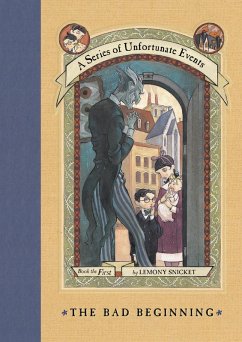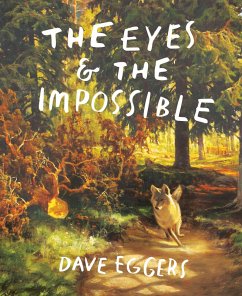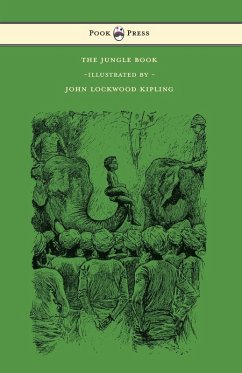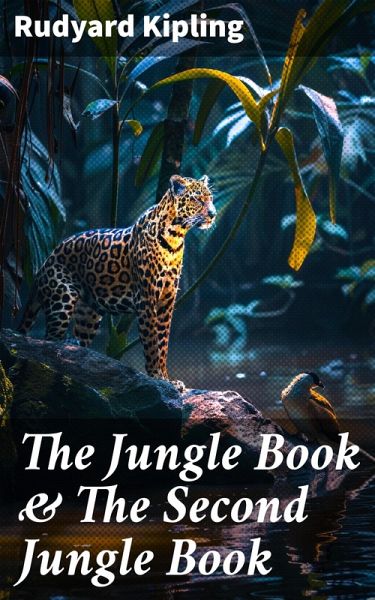
The Jungle Book & The Second Jungle Book (eBook, ePUB)
Illustrated Edition
Versandkostenfrei!
Sofort per Download lieferbar
0,49 €
inkl. MwSt.
Weitere Ausgaben:

PAYBACK Punkte
0 °P sammeln!
Rudyard Kipling's "The Jungle Book" and its sequel, "The Second Jungle Book," are celebrated works that blend adventure, morality, and the intricate relationships between humans and animals in the British Raj context. Through the tale of Mowgli, a young boy raised by wolves, Kipling employs rich, evocative language and vivid imagery to explore themes of identity, belonging, and the clash between civilization and nature. The stories are intricately woven with folklore elements, capturing the essence of Indian culture and the natural world, while showcasing Kipling'Äôs characteristic use of an...
Rudyard Kipling's "The Jungle Book" and its sequel, "The Second Jungle Book," are celebrated works that blend adventure, morality, and the intricate relationships between humans and animals in the British Raj context. Through the tale of Mowgli, a young boy raised by wolves, Kipling employs rich, evocative language and vivid imagery to explore themes of identity, belonging, and the clash between civilization and nature. The stories are intricately woven with folklore elements, capturing the essence of Indian culture and the natural world, while showcasing Kipling'Äôs characteristic use of anthropomorphism as a vehicle for deeper philosophical inquiries. Kipling, a British author born in India, spent significant formative years in the subcontinent, which deeply influenced his understanding of colonialism and cultural diversity. His experiences with both Indian wildlife and local customs inspired a profound appreciation for the complexities of nature and human interactions. This background informs his sensitive portrayals of animal characters who embody universal qualities, serving as allegories for human nature and societal norms. Readers are encouraged to delve into "The Jungle Book" and "The Second Jungle Book" for their captivating narratives that resonate with timeless moral lessons and enchanting adventures. These works not only entertain but also inspire critical reflection on humanity'Äôs relationship with the natural world, making them essential reading for those interested in literature that bridges cultural and moral inquiries.
Dieser Download kann aus rechtlichen Gründen nur mit Rechnungsadresse in A, B, BG, CY, CZ, D, DK, EW, E, FIN, F, GR, H, IRL, I, LT, L, LR, M, NL, PL, P, R, S, SLO, SK ausgeliefert werden.




